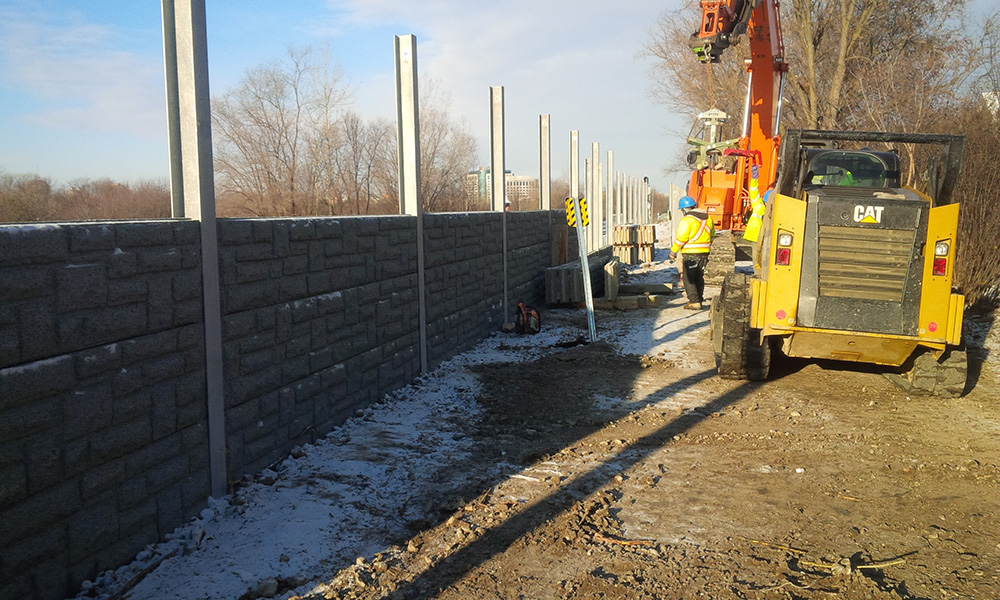
If there’s one thing every construction professional knows, it’s that noise is part of the job. Machinery hums, drills whirr, and trucks rumble in and out of site gates — it’s all just part of life on a project.
But while noise is unavoidable, the way it’s managed can make a huge difference. Left unchecked, it can frustrate neighbours, spook clients, and even slow down your timeline.
On the flip side, proactive noise management shows that your team is organised, responsible, and trustworthy. One of the simplest tools for this? A noise barrier.
Why Noise Matters More Than You Think
It’s easy to overlook noise until it becomes a problem. A few loud machines here and there might seem harmless, but local councils, residents, and businesses often don’t see it that way.
Excessive noise can lead to:
- Community complaints
- Legal or regulatory action
- Reduced working hours
- Delays that ripple through your schedule
For project managers, the stakes are clear: ignoring noise can cost time, money, and credibility. Installing a noise barrier is a simple step to prevent these headaches before they happen.
What Exactly Is a Noise Barrier?
At its core, a noise barrier is a structure designed to block or absorb sound. On construction sites, these barriers can be temporary or modular, making them flexible for different phases of a project.
Typical features include:
- Dense, acoustic materials to reduce decibels
- Weather-resistant panels for outdoor durability
- Modular designs for quick installation and relocation
In short, a noise barrier acts as a protective buffer, shielding the surrounding environment from construction sounds while keeping your site compliant with regulations.
Protecting Your Project Reputation
1. Showing Stakeholders You Care
Clients, neighbours, and regulatory bodies want assurance that construction activity won’t cause unnecessary disruption. When you install a noise barrier, it’s a visible commitment to that promise.
This helps build confidence among stakeholders. They know you’re taking proactive steps to manage the impact of your project, which often translates into smoother approvals, stronger relationships, and repeat business opportunities.
2. Reducing Complaints and Legal Risk
No one enjoys dealing with complaints mid-project, and councils don’t either. By managing noise effectively, you reduce the chances of official notices, fines, or mandatory work stoppages.
A noise barrier doesn’t just lower decibel levels; it shows that your team is organised, compliant, and professional. That’s reputation gold in the construction world.
Enhancing Safety and Productivity
Noise isn’t just a nuisance for neighbours — it affects workers too. Constant loud noise can lead to fatigue, miscommunication, and even accidents on-site.
A noise barrier creates a calmer environment where instructions can be heard, alarms noticed, and conversations conducted safely. The result? Fewer mistakes, less stress, and a more efficient team. Productivity may not be something everyone immediately associates with noise control, but the connection is undeniable.
Demonstrating Corporate Responsibility
Modern construction is about demonstrating environmental and social responsibility. Communities increasingly expect companies to limit the impact of their operations.
By using noise barriers, construction teams can visibly reduce their environmental footprint. Even a modest investment signals that your company is serious about sustainable and considerate building practices.
It’s the kind of gesture that strengthens trust with both local communities and clients and that trust translates directly into project reputation.
Long-Term Benefits of Noise Management
Temporary noise barriers can be reused on multiple sites, making them a cost-effective investment. Beyond compliance and reputation, they contribute to a broader culture of professionalism:
- Clients see that your projects are managed responsibly
- Teams enjoy safer, nose-mitigated working conditions
- Local communities view your company as a considerate neighbour
These benefits are cumulative. A company known for effective noise management gains a competitive advantage when bidding for new projects or negotiating permits.
Practical Tips for Effective Noise Management
While installing a noise barrier is the most visible step, effective noise management often involves a combination of strategies:
- Plan early – Incorporate noise assessment into the initial project design.
- Use high-quality barriers – Invest in durable, modular solutions that can be reused.
- Monitor noise regularly – Ensure levels remain within permitted limits and adjust barriers as needed.
- Communicate with neighbours – Let them know what measures are in place and when noisy activities will occur.
These steps, alongside a reliable noise barrier, create a professional approach that protects your project and builds trust.
Wrapping Up
Noise is inevitable in construction, but letting it spiral out of control is not. A noise barrier is one of the simplest, most effective tools to protect your project’s reputation, maintain stakeholder confidence, and keep operations running smoothly.
By proactively managing noise, you’re not just preventing complaints or fines, but also demonstrating professionalism, responsibility, and care for everyone affected by your project.
In short, noise management isn’t just about sound; it’s about reputation, relationships, and results.
